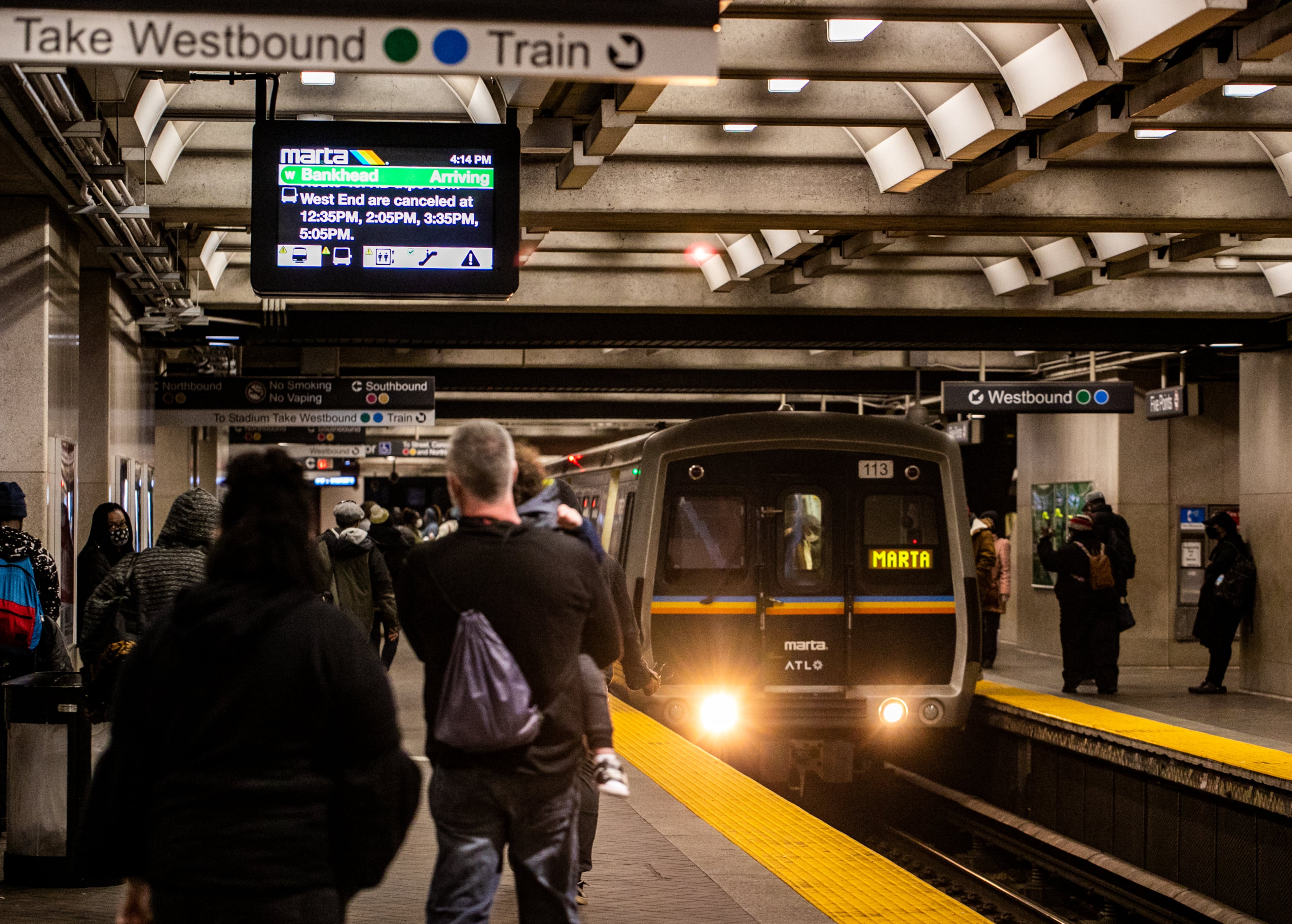Metro Atlanta gets first taste of new infrastructure spending

Some new buses for MARTA. Sidewalks and curb cuts for Cobb County. Planning money for road work in Barrow and Henry counties.
It’s not much in the scheme of things, but the $45 million for these and a few other projects is the first trickle of what could become a torrent of money for metro Atlanta from the infrastructure law that Congress approved in the fall.
The $1.2 trillion measure boosts federal spending for roads and transit, railroads and airports. It also provides funding for clean water, broadband internet, climate change and other initiatives.
The law is expected to funnel hundreds of millions of additional dollars to Georgia over the next five years. Its full effect is subject to future congressional appropriations, and a complete list of projects may not be known for years. But public officials are giddy at the prospect of more infrastructure funding, and they’re scrambling to figure out how to spend it.
“After the euphoria is over, we’ve got a lot of work to do,” interim MARTA CEO Collie Greenwood told regional leaders Wednesday at a briefing on the infrastructure law.
The law includes $550 billion in new spending. Much of the money will be distributed based on formulas that account for each state’s miles of highways, transit ridership and other factors.
The law boosts that share of highway funding by about 20% and transit funding by 30%. Georgia would get $8.9 billion for highway construction and $1.4 billion for public transportation over five years.
Other funds will be awarded through competitive grants, which usually require local matching funds. In metro Atlanta, that means jurisdictions such as Atlanta and Clayton County — where voters have approved new sales taxes for transit expansion in recent years — are likely to get a big share of new transit construction funding.

MARTA has already applied for funding for a proposed Clayton Southlake bus rapid transit line and a renovation of the Five Points station. It’s also considering grant applications for transit lines along Campbellton Road and the Clifton Corridor in Atlanta and the Ga. 400 toll lanes in Fulton County.
Local officials across the region also are looking for ways to take advantage of the new money. Gwinnett County Commission Chair Nicole Hendrickson cited traffic and freight congestion on I-85 and Ga. 316, transit expansion and other needs.
“As soon as the money comes down, we’re ready to spend it,” Hendrickson said.

Already the Atlanta Regional Commission must decide how to spend an initial $45 million in new federal funding that must be allocated before the state’s fiscal year ends June 30. The agency has proposed using it for a variety of projects:
- $12.1 million for 22 compressed natural gas buses for MARTA.
- $11.9 million for electric buses and electric-vehicle charging stations. Local transit agencies would compete for the money later this year.
- $11.5 million for bus shelters, as well as sidewalks, curb cuts and crosswalks near CobbLinc bus stops.
- $9.6 million to upgrade Clayton County’s main transit center in Jonesboro. The project includes covered waiting areas, restrooms and ticketing facilities.
- $640,000 to plan two future road projects: widening Ga. 155 between I-75 and Hampton-Locust Gove Road in Henry County, and a grade-separated intersection at Ga. 316 and Harry McCarty Road in Barrow County.
The regional commission is expected to take final action on the projects next month.
But much about the law’s impact remains uncertain. State and local officials are still waiting for the Biden administration to provide detailed guidance on how money for various programs can be used. And complete project lists may be a long time in coming.
“The money just got dropped on us,” said Andrew Heath, deputy chief engineer of the Georgia Department of Transportation. “Now we’re like, ‘what are we going to do?’”
First glimpse of new federal funding
The Atlanta Regional Commission is seeking public comment on its plans to spend an initial $45 million in funding from the federal Infrastructure Investment and Jobs Act. For more information and to comment, visit www.atlantaregional.org/amendment.


